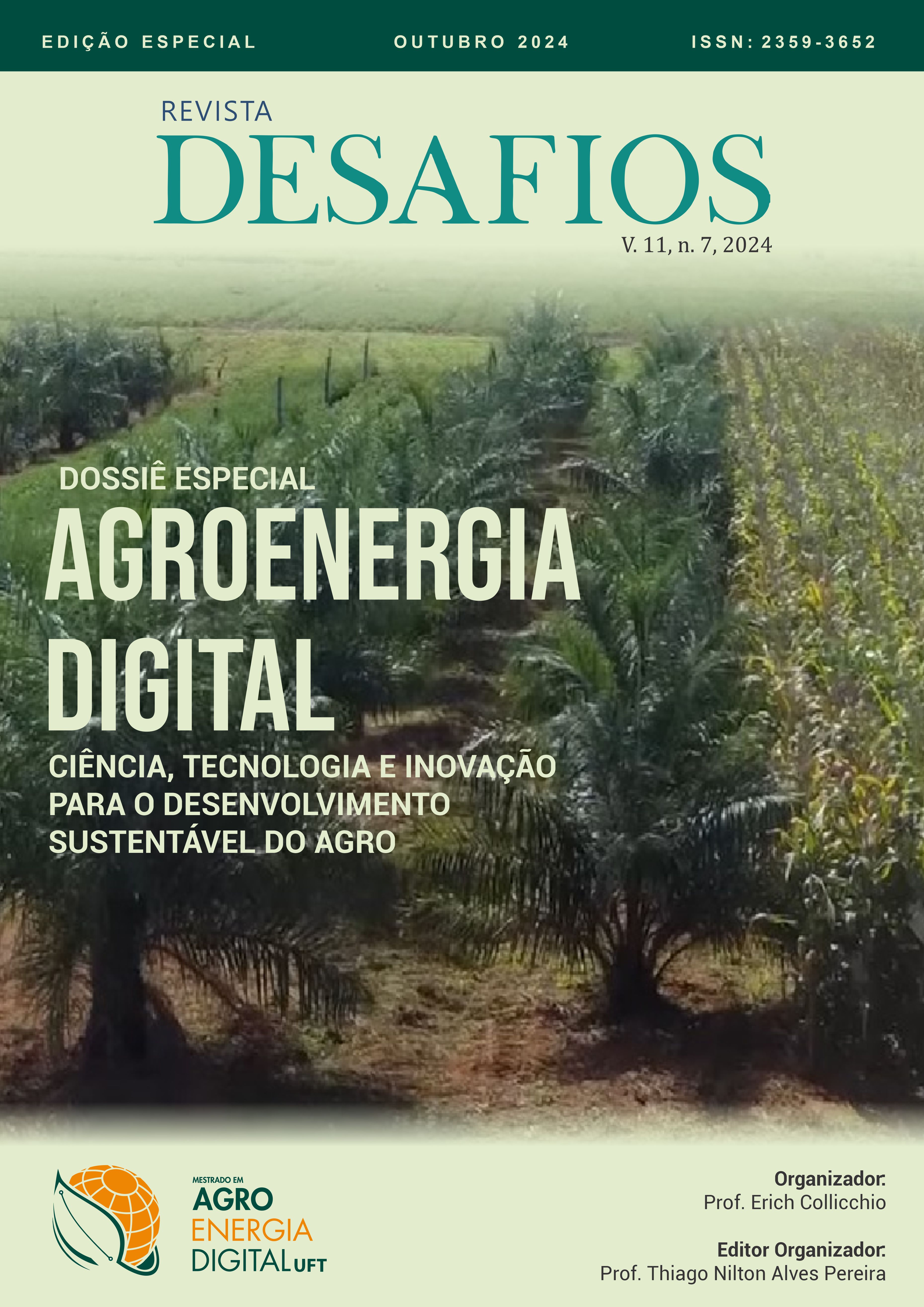SUSTAINABLE ETHANOL PRODUCTION: EVALUATION OF ENZYMATIC HYDROLYSIS EFFICIENCY IN CASSAVA STARCH
DOI:
https://doi.org/10.20873/Agroenergia_2024_v11_n7_17Abstract
The growing energy demand has driven the development of more efficient technologies and renewable
sources. Cassava stands out as an alternative for ethanol production due to its agronomic advantages
and processing characteristics. This study evaluated the effect of different enzymatic hydrolysis times of
starch in cassava cultivars, using a completely randomized design in a 4 x 3 factorial scheme, with four
cultivars (BRS Caipira, BRS Formosa, Mucuruna, and BRS Tapioqueira) and three hydrolysis times, with four
replications. The samples were subjected to enzymatic hydrolysis with α-amylase and amyloglucosidase,
evaluating hydrolysis coefficient, glucose concentration, fermentative yield, and ethanol production potential.
BRS Tapioqueira showed the highest production potential (329.11 ml/kg DM), while Mucuruna showed the
lowest yields. Fermentative yields ranged from 48.76% to 79.43%. The results highlight the importance of
optimizing the hydrolysis process according to specific characteristics of each cultivar for greater efficiency
in biofuel production.
Downloads
Published
How to Cite
Issue
Section
License
Copyright (c) 2024 Guilherme Benko de Siqueira, Erich Collicchio, LAYANE ARAÚJO DIAS VÍTOR, GUSTAVO AZEVEDO CAMPOS, DOMINGOS BOMFIM

This work is licensed under a Creative Commons Attribution-NonCommercial 4.0 International License.
Autores que publicam nesta revista concordam com os seguintes termos:
1. Autores mantém os direitos autorais e concedem à revista o direito de primeira publicação, com o trabalho simultaneamente licenciado sob a Creative Commons Attribution License (CC BY-NC 4.0), permitindo o compartilhamento do trabalho com reconhecimento da autoria do trabalho e publicação inicial nesta revista.
2. Autores têm autorização para assumir contratos adicionais separadamente, para distribuição não-exclusiva da versão do trabalho publicada nesta revista (ex.: publicar em repositório institucional ou como capítulo de livro), com reconhecimento de autoria e publicação inicial nesta revista.
3. Autores têm permissão e são estimulados a publicar e distribuir seu trabalho online (ex.: em repositórios institucionais ou na sua página pessoal) a qualquer ponto posterior ao processo editorial.
4. Além disso, o AUTOR é informado e consente com a revista que, portanto, seu artigo pode ser incorporado pela DESAFIOS em bases e sistemas de informação científica existentes (indexadores e bancos de dados atuais) ou a existir no futuro (indexadores e bancos de dados futuros), nas condições definidas por este último em todos os momentos, que envolverá, pelo menos, a possibilidade de que os titulares desses bancos de dados possam executar as seguintes ações sobre o artigo:
a. Reproduzir, transmitir e distribuir o artigo, no todo ou em parte sob qualquer forma ou meio de transmissão eletrônica existente ou desenvolvida no futuro, incluindo a transmissão eletrônica para fins de pesquisa, visualização e impressão;
b. Reproduzir e distribuir, no todo ou em parte, o artigo na impressão.
c. Capacidade de traduzir certas partes do artigo.
d. Extrair figuras, tabelas, ilustrações e outros objetos gráficos e capturar metadados, legendas e artigo relacionado para fins de pesquisa, visualização e impressão.
e. Transmissão, distribuição e reprodução por agentes ou autorizada pelos proprietários de distribuidoras de bases de dados.
f. A preparação de citações bibliográficas, sumários e índices e referências de captura relacionados de partes selecionadas do artigo.
g. Digitalizar e / ou armazenar imagens e texto de artigo eletrônico.


